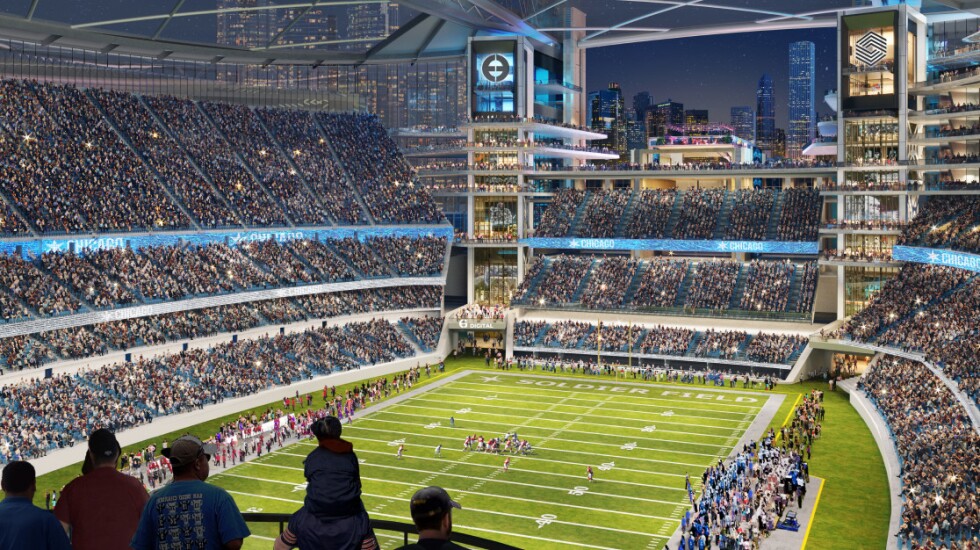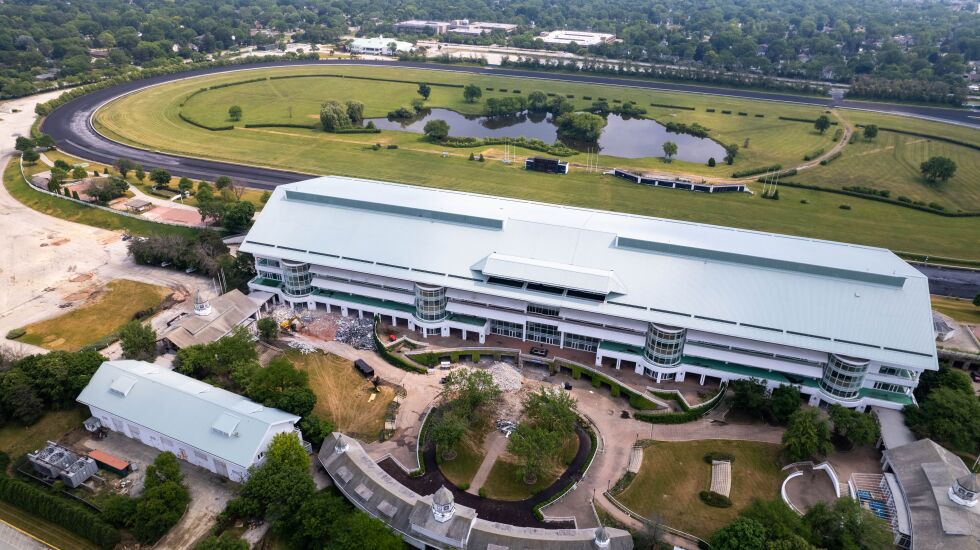
Where the Chicago Bears will play their roughly 10 home games per year and how much taxpayers will be on the hook for it threatens to become a long-running civic soap opera. It’s made frequent headlines for a couple of years, and odds are this show has more years left to run, as nothing could stop the Bears from playing out their lease at Soldier Field through 2033.
Certainly, big decisions have to happen before then. For now, there’s time for sideshows, feints and bravado. We’ve had plenty of that lately, with more towns lining up to offer the Bears a stadium site.
Here’s a bold prediction: The Bears are not going to Naperville, Waukegan, Rockford or any other johnny-come-latelies. This is strictly between Arlington Heights and Chicago, and the contest is closer than some people think.
Similarly and for the big city’s partisans, the Bears are not going to any other site within Chicago that planners may offer up. Sources who have been involved in this process say the Bears have never shown much interest in this option.
People always mention the former U.S. Steel South Works property, at 83rd Street and the lakefront, as a possibility, and at more than 400 acres, it would seem to offer the Bears all the room needed with great views of downtown.
But the McCaskey family that owns the Bears is not headed to the South Side lakefront, which is far from many fans and has no easy highway access.
So that leaves Soldier Field, which NFL experts deride as a poor facility. By current standards, they are right, but issues with the playing field, the capacity, the concourses and the lack of a dome can be fixed, and for less money than it would take to build a stadium from scratch.
Developer Bob Dunn has been making that case for months. His vested interest in Soldier Field is that he wants to build a residential and commercial complex near it called One Central, and he needs a state-funded transit hub to make the project viable.
His “Reimagine Soldier Field” campaign would be easy to dismiss, except Dunn may be the country’s leading expert in building NFL stadiums. He’s been involved in one for each of the Bears’ NFC North Division rivals. He remade Green Bay’s Lambeau Field into an entertainment hub. He also knows Bears President and CEO Kevin Warren from when Warren worked for the Minnesota Vikings and the Detroit Lions.
Dunn, president of Landmark Development, deflected questions about contacts with the Bears. In a brief interview, he stuck with his main point that reusing 70% of Soldier Field would save the Bears — and maybe taxpayers — $1 billion compared with setting up in Arlington Heights.
“That’s how you crack the economic code for building a stadium here,” he said.
His proposal includes a dome supported by columns built just beyond the end zones, bringing concessions to the dead space in the colonnades and adding a concert stage near the Field Museum.
Dunn’s plan impressed a veteran developer who years ago advised City Hall on stadium issues. The developer, who asked not to be named, said he’s doubted the McCaskey family’s ability to make a stadium the start of a $5 billion-plus development at the old Arlington International Racecourse, a site bigger than Six Flags Great America in Gurnee.
“It used to have many more race days than it would have football days with the Bears, yet the racetrack never generated that much development around it,” he said.
Arlington Heights still could get the Bears, of course. The site has great appeal. The team owns it and wouldn’t have to share revenue for parking, sponsorships and what-not. It has its own Metra stop and proximity to Route 53. The location is convenient for the team’s wealthier fan base.
But the Bears have run into a buzzsaw of criticism over incentives and have made no headway with state legislation to reduce its property taxes.
The McCaskey family is known for keeping its own counsel, but its stadium decision will depend on money, ease of access for most fans and how the facility itself increases the value of the franchise. Forbes says the Bears are worth $5.8 billion.
Since the McCaskeys are so private, their rare public comments are closely parsed. For a long time, Chairman George McCaskey and former President Ted Phillips, now retired, had a good cop-bad cop routine. Phillips would talk up the virtues of Arlington Heights and say the Bears had no “Plan B” for a stadium. McCaskey would add cautions about all the hurdles a new stadium would have to clear.
The good cop, though, is tops on the organization chart, and the McCaskeys don’t do mixed-use mega construction. As Arlington Heights bogs down, old Soldier Field is closing fast.








